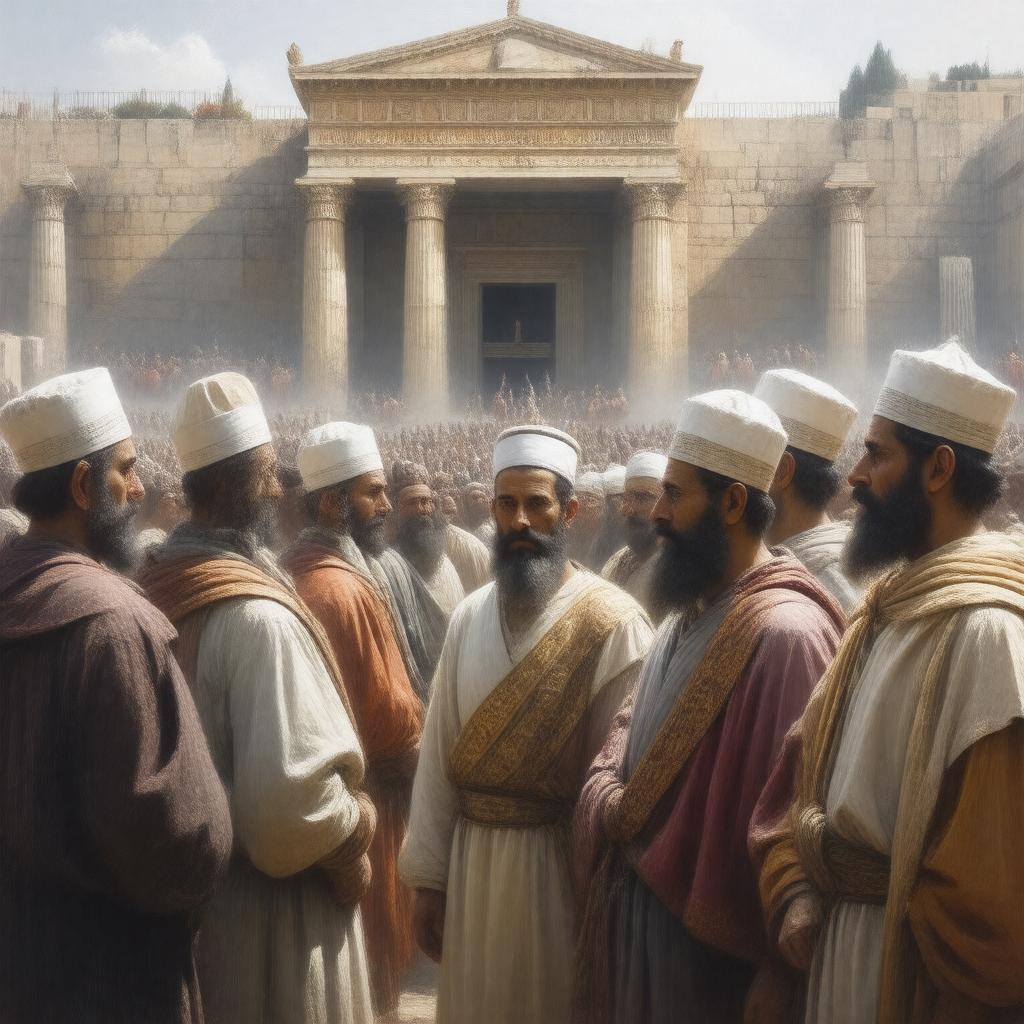Prompt
"Generate an image of a group of Jewish priests and noblemen in traditional attire, standing in front of the Second Temple in Jerusalem, representing the Sadducees, a Jewish sect known for their literal interpretation of the Torah and their association with the Temple priesthood and nobility, during the Second Temple period."

